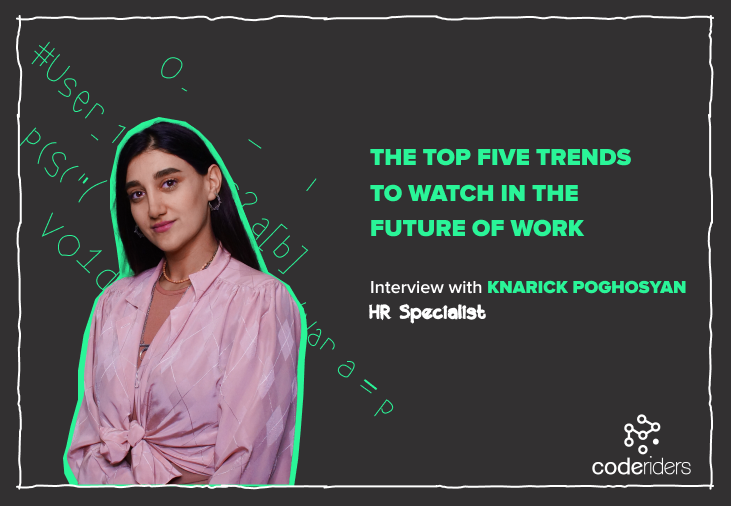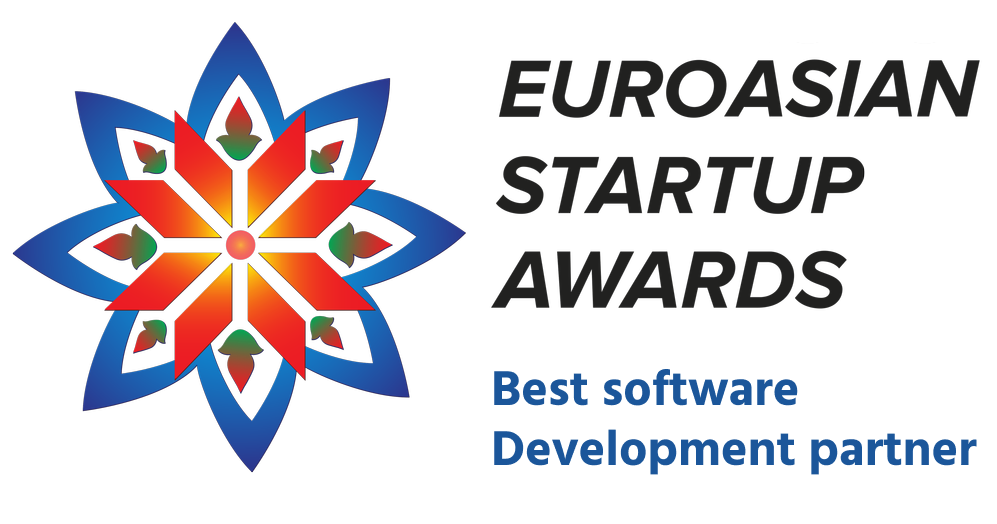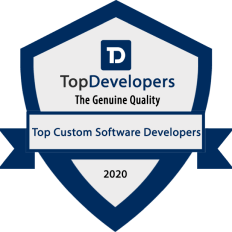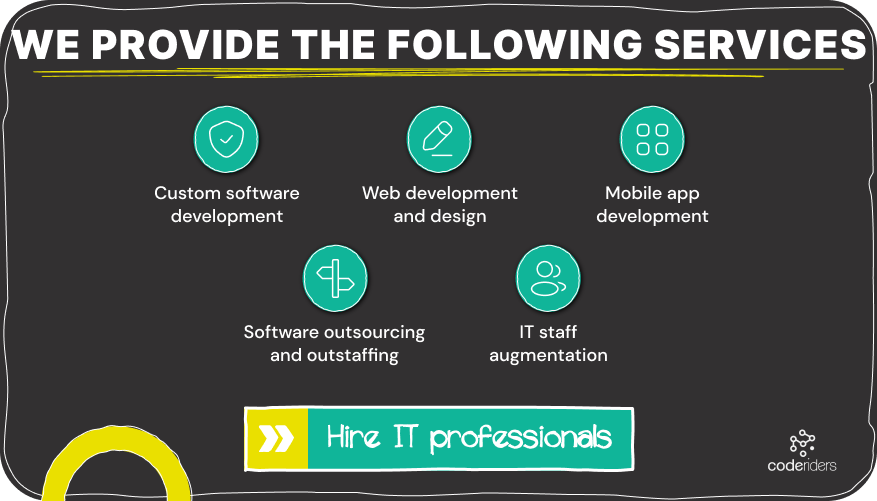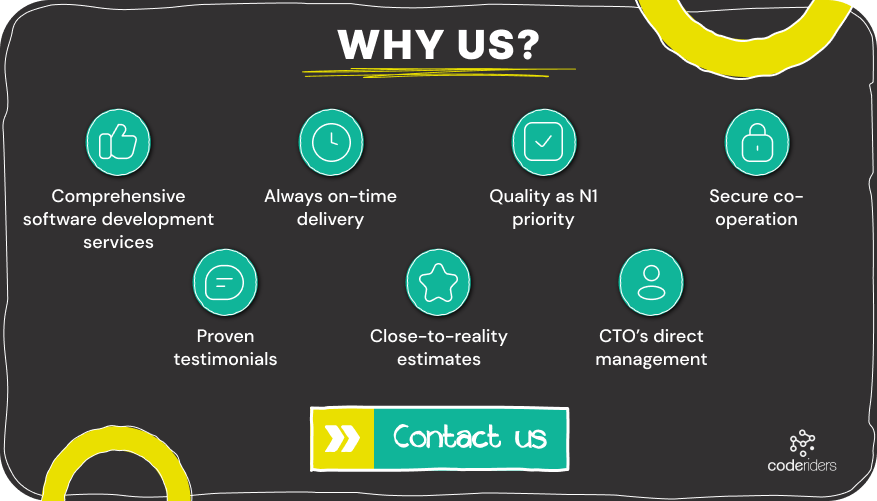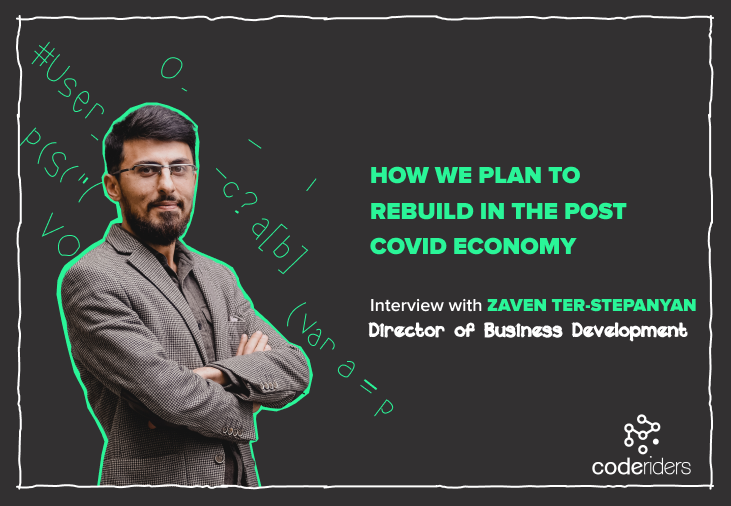There have been major disruptions in recent years that promise to change the very nature of work. From the ongoing shifts caused by the COVID19 pandemic, the impacts caused by automation, and other possible disruptions to the status quo, many wonder what the future holds in terms of employment. For example, a report by the McKinsey Global Institute estimated that automation will eliminate 73 million jobs by 2030.
Subscribe to Newsletters
As a part of this interview series of The Authority Magazine called “Preparing For The Future Of Work”, CodeRiders’ Human Resources Manager (HR), Knarik Phogosyan spoke with Authority Magazine to unpack the future changes in business amidst the contentious growth in innovative software solutions and AI solutions.
Knarik is a Human Resources Manager at CodeRiders software development company with around 3 years of experience in the IT and HORECA (Hotel/Restaurant/Cafe) industries. She has a strong understanding of various HR functions, including recruitment and selection, onboarding, performance management, and employee relations. Knarik has demonstrated her ability to work in fast-paced environments and handle multiple tasks simultaneously. Her expertise in HR has helped her to develop effective communication skills, build and maintain relationships with stakeholders, and provide support to management and employees.
- Thank you so much for joining us in this interview series! Our readers like to get an idea of who you are and where you came from. Can you tell us a bit about your background? Where do you come from? What are the life experiences that most shaped your current self?
- Thank you for this opportunity to share my professional experience and personal challenges. As an HR Manager at CodeRiders software development company, I have been able to discover my true passion and motivation for my work, after experiencing various industries throughout my career.
Initially, I worked in the HORECA industry, where I enjoyed my role, but eventually realized the instability of my job due to the unpredictable nature of the industry. This led me to explore other career opportunities, and I ultimately found my way to CodeRiders, where I currently serve as HR Manager and Recruiter.
The past few years have been particularly challenging due to the global COVID-19 pandemic. However, I feel fortunate to be working in an industry that has remained resilient and stable during these trying times. It has been a humbling experience to witness the resilience and perseverance of my colleagues and the company during these challenging times.
- What do you expect to be the major disruptions for employers in the next 10–15 years? How should employers pivot to adapt to these disruptions?
- It is expected that in the next 10–15 years, employers will face significant disruptions due to technological advancements, changing demographics, and the need for upskilling and reskilling. Rapid advancements in technology are likely to automate many jobs while simultaneously creating new ones. Employers must adjust to these changes by investing in new technologies and training their employees to use them efficiently. They must also emphasize the development of skills that cannot be easily automated, such as creativity, open-minded thinking, etc.
Flexibility is crucial for employers to attract and retain top talent. They should adopt a more personalized approach to work and offer tailor-made benefits to their employees. Additionally, employers must prioritize upskilling and reskilling programs to ensure their employees remain equipped with the necessary skills to succeed in the future of work.
To navigate this technological world, employers must create a compelling and robust corporate culture that supports innovation, learning, and development. They should invest in technology and offer personalized benefits. The need for continuous learning and upskilling is a significant challenge for employers in the digital age, and they must address it proactively to remain relevant. By creating a culture of lifelong learning and development, employers can keep pace with the rapid changes and equip their employees with the skills needed to succeed in the future of work.
- The choice as to whether or not a young person should pursue a college degree was once a “no-brainer”. But with the existence of many high-profile millionaires (and billionaires) who did not earn degrees, as well as the fact that many graduates are saddled with crushing student loan debt and unable to find jobs it has become a much more complex question. What advice would you give to young adults considering whether or not to go to college?
- When contemplating whether or not to pursue a college education, young adults should adopt a deliberate and reflective approach. Although there are some instances of individuals achieving success without a college degree, it is essential to acknowledge that this is not the typical outcome. Generally, a college degree remains a valuable asset in the present-day competitive job market.
It is imperative for young adults to conduct thorough research and evaluate their personal aspirations, interests, and financial circumstances when deciding whether to attend college. They should contemplate the potential benefits and drawbacks of obtaining a college education and reflect on how this decision aligns with their long-term career goals.
Subscribe to Newsletters
Furthermore, young adults should not rush into the decision to attend college but should take the time to explore and assess the various educational opportunities available to them. They should consider alternative options to traditional four-year degree programs, such as vocational or technical programs, which may better align with their career objectives.
In addition, I would like to highlight that our company, CodeRiders, provides ample opportunities to train and mentor aspiring individuals to develop their programming skills and potentially join our team. Such programs offer participants the chance to assess their interest and aptitude in this dynamic field, thereby helping to shape their career aspirations. By offering these learning and development opportunities, we have been able to positively impact the lives of many talented and motivated individuals who may have otherwise been unable to access such training.
In conclusion, the choice to pursue a college education should be made after careful consideration and comprehensive analysis of one’s individual situation and aspirations. Young adults should contemplate the potential benefits and drawbacks of a college education and make informed decision that aligns with their long-term goals.
- Despite the doom and gloom predictions, there are, and likely still will be, jobs available. How do you see job seekers having to change their approaches to finding not only employment but employment that fits their talents and interests?
- While the job market may experience fluctuations and changes over time, it is true that there will always be job opportunities available for individuals with the right skill sets and qualifications. However, to find employment that aligns with their talents and interests, job seekers may need to adjust their approach to the job search process.
One key strategy is to focus on identifying their strengths, skills, and interests and then seek out job opportunities that align with those factors. This may involve conducting extensive research into potential employers, networking with individuals in their desired industry or field, and honing their skills through additional training or education.
Job seekers may also need to be flexible and adaptable in terms of their career expectations, recognizing that their desired role or industry may not always be immediately available. This may involve considering alternative career paths or exploring opportunities in related industries.
In addition, job seekers may need to develop a strong online presence, including a professional online profile and social media presence, to showcase their skills and attract potential employers.
Overall, the key to success in finding employment that fits both one’s talents and interests is to be proactive, flexible, and strategic in the job search process. By leveraging their strengths and taking a strategic approach to the job search process, job seekers can increase their chances of finding meaningful employment that aligns with their goals and aspirations.
Subscribe to Newsletters
- The statistics of artificial intelligence and automation eliminating millions of jobs appear frightening to some. For example, Walmart aims to eliminate cashiers altogether and Domino’s is instituting pizza delivery via driverless vehicles. How should people plan their careers such that they can hedge their bets against being replaced by automation or robots?
- The increasing prevalence of artificial intelligence and automation in the workforce can certainly be unsettling for those who are concerned about the potential impact on job security. However, there are steps that individuals can take to hedge their bets against being replaced by automation or robots.
One approach is to focus on developing skills and expertise that are less likely to be automated or outsourced. For example, jobs that require creativity, critical thinking, and interpersonal communication skills are less likely to be fully automated, as these skills are difficult to replicate with AI and robotics.
Another strategy is to consider roles that involve managing or working alongside technology, rather than being replaced by it. For example, individuals who have a deep understanding of AI and automation and can leverage these technologies to improve business operations may be in high demand.
It is also important to stay up-to-date with developments in the field and seek out opportunities for ongoing learning and development. This may involve taking courses, attending conferences and networking events, and engaging with online communities and resources to stay informed about the latest trends and technologies.
Finally, it is worth noting that some jobs may be automated or outsourced in part, but not entirely. In these cases, individuals who have a combination of technical and interpersonal skills may be better positioned to navigate the changing landscape and thrive in their careers.
Individuals who are concerned about the impact of automation and AI on their job prospects should focus on developing skills and expertise that are less likely to be automated, staying informed about the latest developments in the field, and considering roles that involve managing or working alongside technology.
- Technological advances and pandemic restrictions hastened the move to working from home. Do you see this trend continuing? Why or why not?
- Yes, I believe that the trend of working from home will continue even after the pandemic is over. The COVID-19 pandemic has forced many companies and organizations to shift to remote work, and in doing so, they have discovered that remote work can be as effective and productive as working in the office. Additionally, many employees have also found that they enjoy the flexibility and convenience that comes with working from home. For example, we at CodeRiders went remote during the pandemic in 2020, and after that, we implemented the hybrid work style into our company culture. Technological advances have made it easier than ever for people to work remotely, with a wide range of tools and platforms available to facilitate remote collaboration and communication. Many businesses have also invested in improving their remote work infrastructure, such as by providing better VPN access, upgrading video conferencing equipment, and implementing cloud-based tools.
Moreover, remote work allows businesses to expand their pool of potential employees beyond their immediate geographic area, which can lead to greater diversity and access to talent. This can also help to reduce the costs associated with maintaining office space and equipment, which can be significant for many businesses.
However, it’s worth noting that not all jobs are suitable for remote work, and some employees may prefer to work in an office environment. Some jobs require in-person interactions and teamwork that may be difficult to replicate remotely. Nevertheless, the pandemic has shown that remote work can be a viable option for many businesses and employees, and I believe that it will continue to be an important part of the modern workforce.
- What societal changes do you foresee as necessary to support the fundamental changes to work?
- To support the fundamental changes to work brought about by the shift to remote work, several societal changes will be necessary. Here are some of the most significant changes that I foresee:
Investment in digital infrastructure: The pandemic has highlighted the importance of digital infrastructure, such as high-speed internet and reliable connectivity. Governments and businesses will need to invest in digital infrastructure to ensure that everyone has access to the technology necessary to work remotely.
Rethinking work-life balance: With remote work, the boundaries between work and personal life can become blurred. Employers and employees will need to work together to establish clear expectations and guidelines for work hours and ensure that employees have a healthy work-life balance.
Support for mental health: Remote work can be isolating, and it can be challenging to maintain social connections with colleagues. As such, employers will need to prioritize mental health support, such as counseling and virtual social activities, to help employees maintain a sense of community and well-being.
Redefining office space: With remote work becoming more prevalent, the role of the office will need to be redefined. Offices may become less of a permanent work location and more of a collaborative space for team meetings, training, and other activities that are better suited for in-person interactions.
Flexibility in hiring and job requirements: Remote work allows companies to access a wider pool of potential candidates, including those who live in different geographic locations or have caregiving responsibilities that may make it difficult to work traditional hours. Employers will need to be more flexible in their hiring requirements and job expectations to accommodate these changes.
These are just a few of the societal changes that I foresee as necessary to support the fundamental changes to work brought about by the shift to remote work. The future of work is likely to be more flexible and adaptable, and it will require a collaborative effort from employers, employees, governments, and society as a whole to make it work for everyone.
- What changes do you think will be the most difficult for employers to accept? What changes do you think will be the most difficult for employees to accept?
- There are several changes that employers and employees may find difficult to accept as remote work becomes more prevalent. Here are some of the most significant changes that could pose challenges for both employers and employees:
For employers:
Managing remote workers: Some employers may find it challenging to manage remote workers and ensure that they are staying productive and engaged without direct supervision.
Establishing and enforcing clear policies: With remote work, it can be more challenging to establish and enforce clear policies around work hours, communication, and other important aspects of work.
Maintaining company culture: Without regular in-person interactions, it can be challenging for employers to maintain a strong company culture and ensure that employees feel connected to one another.
For employees:
Maintaining a work-life balance: Remote work can blur the boundaries between work and personal life, making it difficult for some employees to maintain a healthy work-life balance.
Managing distractions: Without the structure of an office environment, it can be challenging for employees to stay focused and avoid distractions at home.
Feeling isolated: Remote work can be isolating, and some employees may miss the social interactions and sense of community that come with working in an office.
Subscribe to Newsletters
- Despite all that we have said earlier, what is your greatest source of optimism about the future of work?
- There are several reasons to be optimistic about the future of work. One of the most significant reasons is the advancement of technology. Emerging technologies, such as artificial intelligence, automation, and machine learning, are changing the nature of work, making it more efficient, productive, and flexible.
Moreover, remote work is becoming more widespread, enabling individuals to work from any location and providing more flexibility in their work schedules. This can lead to a better work-life balance, which is crucial for employee well-being and productivity.
Another source of optimism is the increasing focus on employee well-being and mental health in the workplace. Here, at CodeRiders, we recognize the importance of providing a supportive and healthy work environment for our employees, which can lead to improved job satisfaction and productivity.
Finally, there is also a growing awareness of the need for diversity, equity, and inclusion in the workplace. We are taking steps to address issues such as unconscious bias and to create more inclusive work environments that value and respect all employees regardless of their backgrounds.
- Historically, major disruptions to the status quo in employment, particularly disruptions that result in fewer jobs, are temporary with new jobs replacing the jobs lost. Unfortunately, there has often been a gap between job losses and the growth of new jobs. What do you think we can do to reduce the length of this gap?
- That’s a great question. To reduce the length of this gap, we need to adopt proactive measures that create new job opportunities and help workers transition to new industries and roles. Some strategies that can be employed to reduce this gap include encouraging innovation and entrepreneurship, investing in education and training, supporting small businesses, implementing social safety nets, and promoting job-sharing and flexible work arrangements.
When governments, businesses, and educational institutions work together to create an environment that fosters innovation and entrepreneurship, it can lead to the creation of new industries and job opportunities that can absorb workers who have been displaced from traditional industries. This can help to fill the gap created by job losses.
Another option is providing education and training opportunities that can help workers develop the skills they need to transition to new industries and roles. Governments, businesses, and educational institutions can work together to provide training and upskilling programs that are tailored to the needs of specific industries and regions. This can help prepare workers for new job opportunities and reduce the length of the gap.
Here small businesses also can have an important role: engine of job creation in many economies. Governments can provide incentives and support to small businesses to help them grow and create new job opportunities. This can help to fill the gap created by job losses and provide new employment opportunities for workers.
- Okay, wonderful. Here is the main question of our interview. What are your “Top 5 Trends To Watch In the Future of Work?” (Please share a story or example for each.)
- Sure, I’d be happy to share my top 5 trends to watch in the future of work.
- Remote work: The pandemic has shown us that remote work is not only possible but can also be very effective. As more companies adopt remote work policies, we will likely see a shift towards a more distributed workforce. This trend has also resulted in an increase in demand for tools and technologies that enable remote work, such as video conferencing, project management software, and collaboration tools. For example, Zoom, a video conferencing platform, saw a significant increase in usage during the pandemic, as people around the world shifted to remote work and virtual meetings.
- Automation and AI: Automation and AI are changing the way we work, and this trend is only going to accelerate in the future. For example, companies are increasingly using chatbots and virtual assistants to handle customer service inquiries, and algorithms to analyze data and make business decisions. One example of this is IBM’s Watson, an AI platform that is being used by various industries to automate complex tasks, such as diagnosing medical conditions, providing financial advice, and even creating music.
- The Gig Economy: The Gig Economy is a trend that has been gaining momentum over the past few years. This trend is characterized by an increase in short-term contracts, freelance work, and temporary jobs. For example, companies like Uber and Airbnb have disrupted the traditional taxi and hotel industries by offering peer-to-peer services. This trend has also resulted in an increase in demand for online platforms that connect businesses with freelancers, such as Upwork and Fiverr.
- Upskilling and Reskilling: With the rise of automation, many jobs are becoming obsolete. To stay competitive, workers need to continuously upskill and reskill. Employers are investing in training and development programs to help employees acquire new skills. For instance, Amazon launched a $700 million program to upskill 100,000 employees by 2025 in areas such as machine learning and data science.
- Focus on well-being: As work becomes more demanding and stressful., there will be a greater focus on employee well-being. Companies will need to prioritize the physical, mental, and emotional health of their employees to prevent burnout and maintain productivity. This could include initiatives like flexible work schedules, mental health resources, and wellness programs. One example of a company that prioritizes employee well-being is Patagonia, which offers its employees onsite childcare, yoga classes, and paid time off for activism.
Subscribe to Newsletters
- Can you please give us your favorite “Life Lesson Quote”? Can you share how this quote has shaped your perspective?
- One of my favorite life lesson quotes is about taking risks and it comes from Mark Zuckerberg, the founder of Facebook, who once said, “The biggest risk is not taking any risk. In a world that is changing quickly, the only strategy that is guaranteed to fail is not taking risks. “
This quote speaks to the importance of taking calculated risks to achieve success in a constantly changing world. It’s easy to get comfortable with the status quo and avoid taking risks, but that approach can ultimately lead to stagnation and missed opportunities. By embracing risk-taking, we open ourselves up to new experiences, new perspectives, and new possibilities. It can be scary to take a leap of faith, but often the biggest rewards come from taking those risks.
We are very blessed that some of the biggest names in Business, VC funding, Sports, and Entertainment read this column. Is there a person in the world, or in the US with whom you would love to have a private breakfast or lunch, and why? He or she might just see this if we tag them.
One person who comes to mind is Elon Musk, the CEO of Tesla and SpaceX. His innovative approach to business and his ambitious goals for space exploration and sustainable energy are truly inspiring. I would love to discuss with him his thoughts on the future of technology and how it will shape our world in the years to come.
Our readers often like to follow our interview subjects’ careers. How can they further follow your work online?
Sure, you can Follow our work at www.coderiders.am or Linkedin.
You can contact CodeRiders here and get to know our business development team. We provide qualified software developers, software engineers, UI/UX designers, and other IT-related specialists who have proven experience in working on various complex tech projects for companies from various cultural and industrial backgrounds.
Interview source: Authority Magazine
Having
development
needs?
CodeRiders will address your web and mobile development challenges by creating custom software, helping with outsourcing services, or just consulting on your software development requirements.


